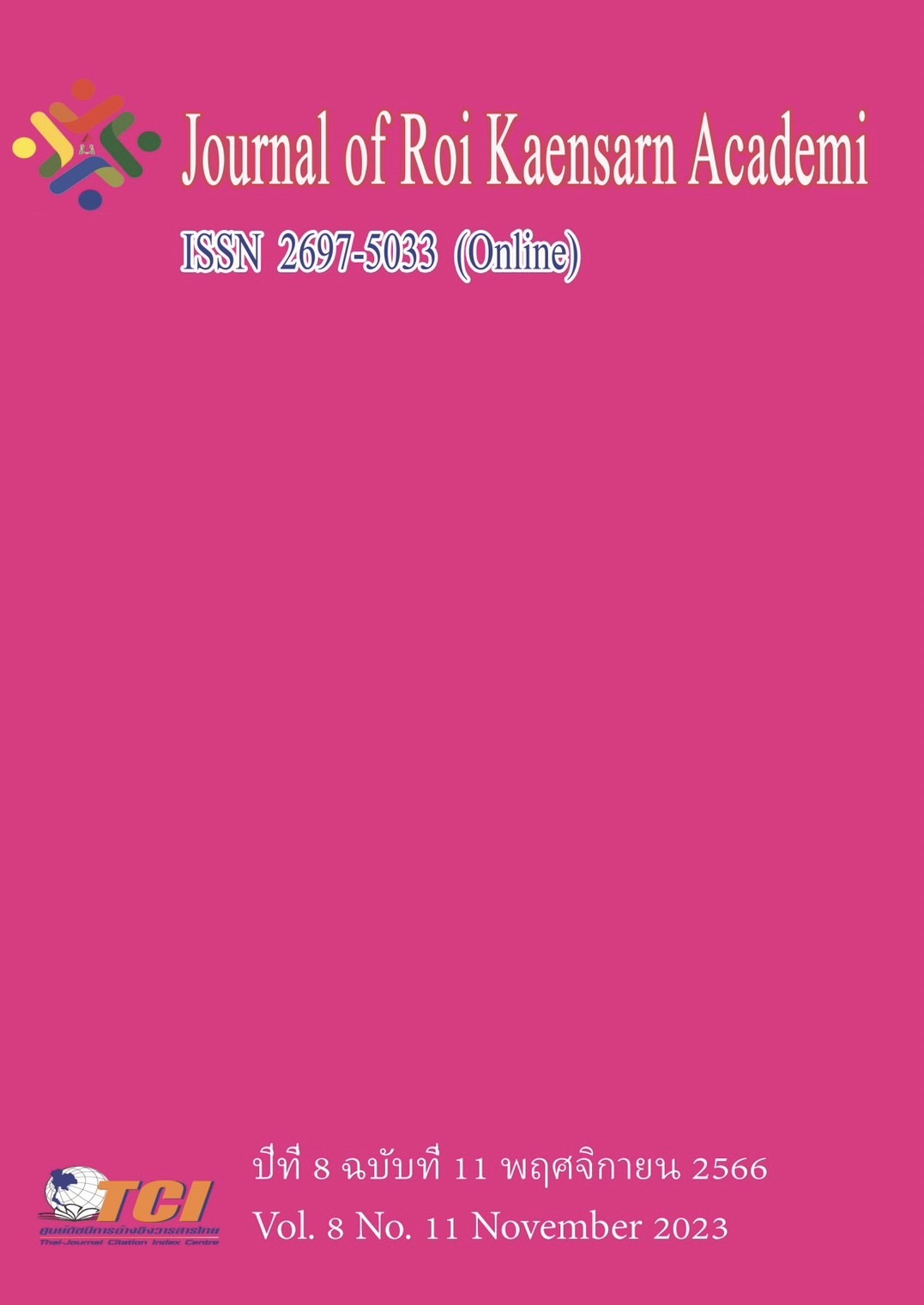A Study on the Path of High Quality Development of Higher Vocational Education in Jiangxi Province, China under the Background of High Technology
Main Article Content
บทคัดย่อ
This study is based on the background of high-tech in China, with teaching and administrative staff in vocational colleges in Jiangxi Province, China as the research object, and explores the influencing factors of their innovative development as the main research content. Based on this argument and relevant literature, three basic potential variables of the model are constructed, namely: professional identity, organizational identity, and innovative behavior. There are three hypotheses in total, Construct a theoretical model for the study of innovative behavior among faculty and staff in vocational colleges in Jiangxi Province. The data was collected through online questionnaires, and statistical tests were conducted using SPSS22.0 and AMOS24.0 software. The statistical tests included descriptive statistical analysis, reliability and validity testing of test items, model fitting testing, and research hypothesis testing.
The research results found that: (1) professional identity positively affects the innovative behavior of faculty. (2) Organizational identity has no impact on the innovative behavior of faculty members. (3) Professional identity positively affects organizational identity. Finally, based on the research findings, corresponding research recommendations were proposed.
Article Details
เอกสารอ้างอิง
Beijaard, D. (1995). Teachers' prior experiences and actual perceptions of professional identity. Teachers and teaching, 1(2), 281-294.
Amabile, T. M., Conti, R., Coon, H., Lazenby, J., & Herron, M. (1996). Assessing the work environment for creativity. Academy of management journal, 39(5), 1154-1184.
Fornell, C., & Larcker, D. F. (1981). Structural equation models with unobservable variables and measurement error: Algebra and statistics. 382-388.
Nunnally, J. C., & Bernstein, I. H. (1979). This week’s citation classic. Psychom. theory, 34.
Tang G.J. (2012). The relationship mechanism between career identity and career planning. Hangzhou Zhejiang University Press, 19-23.
Yang Y. (2021). Research on the impact mechanism of organizational innovation values on employee innovation behavior. Yunnan University of Finance: Pratt, M.
Woodman, R. W., Sawyer, J. E., & Griffin, R. W. (1993). Toward a theory of organizational creativity. Academy of Management Review, 18(2), 293-321.
Zhu Y.Y. and Ma M.H. (2022). The impact of trait mindfulness on the proactive innovation behavior of manufacturing employees: the mediating effect of occupational identity and job exuberance. Technological Progress and Countermeasures, (27) 12, 1-11.

